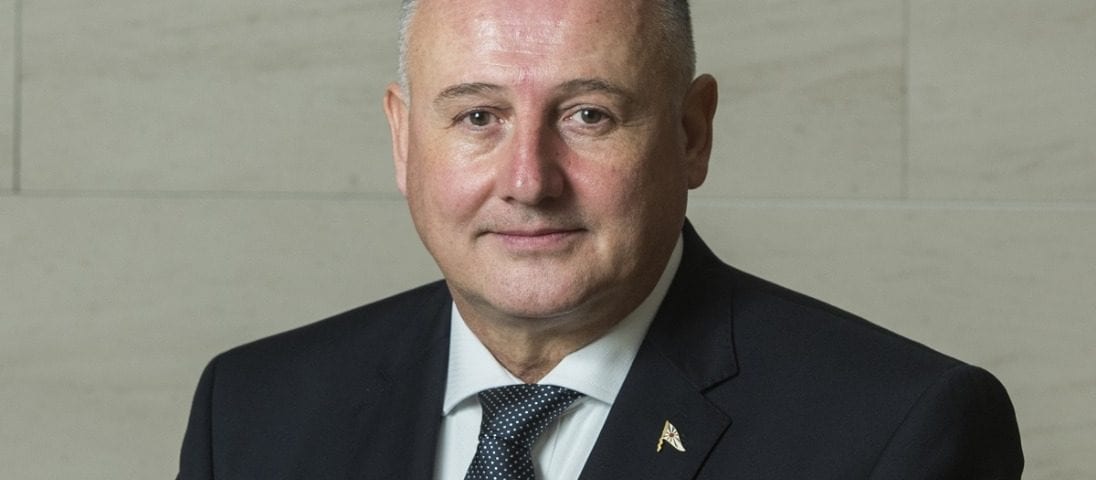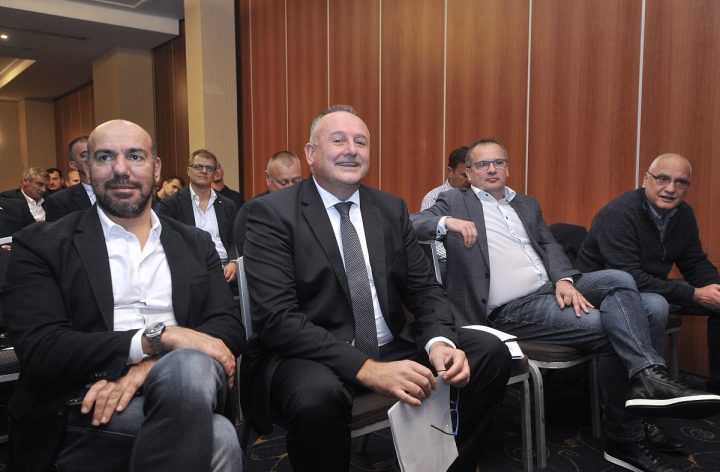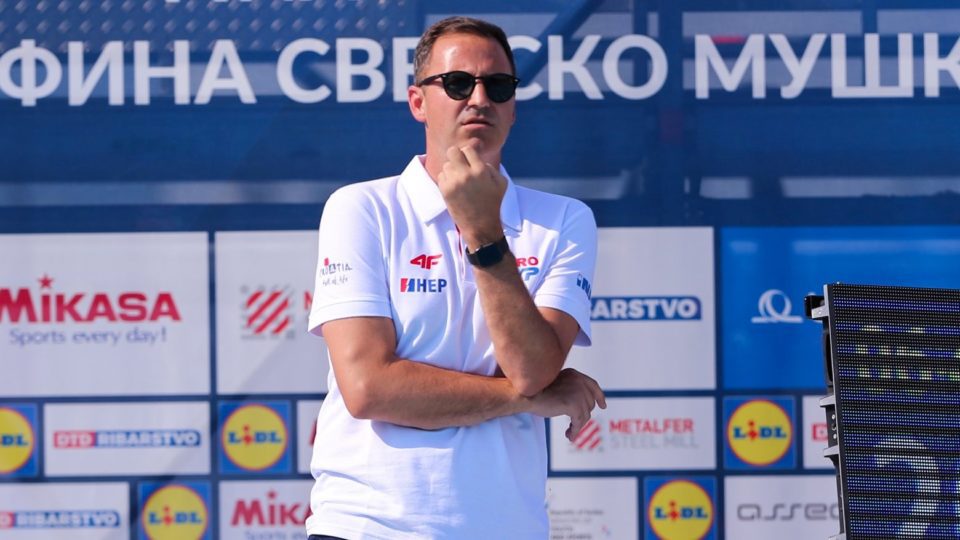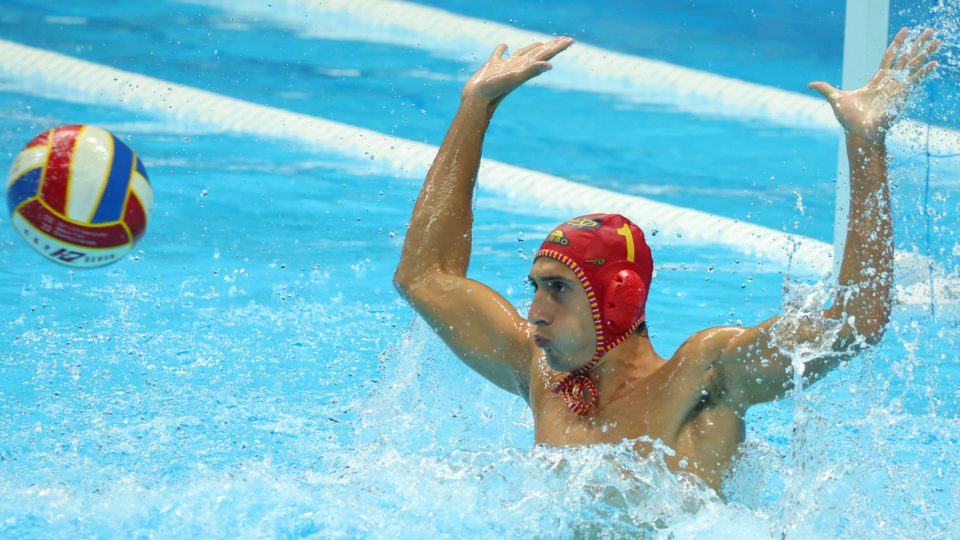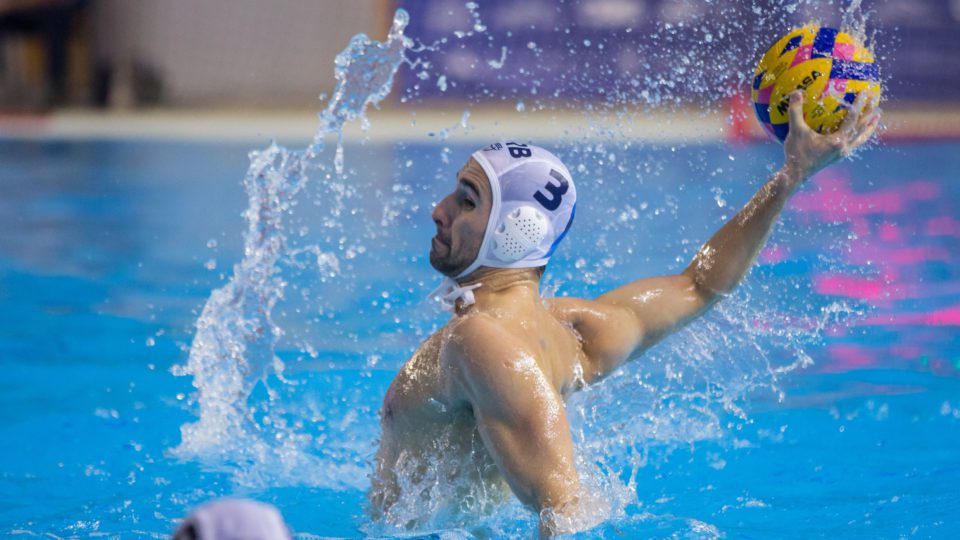A couple of days ago, there was a personnel change at the HVS (Croatian Water Polo Federation). Mladen Drnasin, ex-water polo player and businessman from Split, Croatia, became the new president.
See what he had to say about water polo in Croatia and the world in general, as well as his future plans as president.
Past and Future
Please introduce yourself to our global audience – Who is Mladen Drnasin and what can he offer to the current world champions’ water polo federation?
I’m 51 years old and I come from Split where I live and work. I was a water polo player for a long time, I started back in 1978 in VK Jadran (Split).
I was only 16 years old when I started playing for the men’s team together with my peers. I stayed there for 5 years, after which I was off to Australia to play for the Melbourne Collegians.
A whole year abroad was more than enough for me so I returned home to spend the next few years playing in different clubs. I played in Slovenia, Italy, and I spent three years at VK POŠK Split. At the end of my career, I was playing in Slovenia again, in Kopar, where we won the championship and the cup.
After that, I turned to my business, but besides that, I have been a board member at VK Jadran Split, and sports director of the club for a four year period. I took a short break from water polo after which I returned to VK Jadran in 2016 as a board member and vice president, where I have been until today. During that time, I was also active in the Croatian Water Polo Federation where I was a member of the board since 2004 and also eight years’ member of the expert committee.
Professionally I am a co-founder and now chairman of company Deltron where I work for almost 23 years now.
Before we get into your future mandate as the president of the HVS (Croatian Water Polo Federation), tell us something about the plans you have been working on in VK Jadran, Split. What were your goals?
Well, a couple of years ago, we gathered the former players and some people who were close to the club and decided to help out, the main goal was to improve the work with younger generations and bring the club back to the top where it belongs. We aimed for raising the junior divisions’ work out quality, therefore reaching better results and higher ambitions.
This has been going smoothly, for now. We are slowly implementing our plan and are proud that we already won one Croatian championship with one of our younger selections. We have talented kids here.
We also included former players as coaches. For example, there is Mile Smodlaka, who was one of the best players of his time, then Boris Popović or Hrvoje Kundid.
The senior team is also doing great. Last year we played the quarter-finals of the LEN Cup, we won the third place in the Croatian National Championship and played the final of the Croatian Cup. This year we have the opportunity to play the Champions League, which is a great achievement for such a short period of time and we are all very proud for that reason.
This is a big deal for the club and the city of Split, but also for Croatian water polo in general because, with this, we have three Croatian teams in Europe’s most elite competition (VK Jadran, VK Jug, and HAVK Mladost).
How do you see your future mandate?
Everything we will do in the future will be based on current progress, we have to continue the great work and even try to improve it which is not an easy task.
Every one of us belongs to a specific club, but what we do together is for the greater good of Croatian water polo in general. Our goal is to stay among the medal-winners in all competitions.
It is also very important and I am so proud together with all the members of Croatia’s water polo family, that my hometown, Split was announced by LEN as the host for the 2022 European Water Polo Championships. This is a great opportunity for us and I am sure that we will succeed in organizing an unforgettable event in the Spaladium arena with more than 10.000,00 spectators.
Water Polo – Men and Women
Let’s start with the latest competitions. World Cup – 5th place. Is that a success or failure?
Looking back at the past season which concluded with the World Cup in Berlin, I want to point out that we managed to continue our series of medals from major competitions by winning the Bronze at this year’s European Championship in Barcelona.
You cannot always be the champion, especially with the heavy injuries and other problems our players had to face. I’m primarily talking about Sandro Sukno. Even though we used to be at the top even among medalist, this is not that bad considering everything. But, of course, we hoped and wanted a better result.
In the tournament, we had a mixed team, and there were the experiments with the rules, like 11 players in the roster among other changes.
All these adaptations obviously didn’t go well for us. Also, we have to be fair to the players and the coach and say that we only lost one game — against Australia, which was led by excellent Elvis Fatović and I personally congratulate him on it.
The Australian team had been preparing for that tournament the whole summer. Our players, on the other side, were tired since there was a whole season behind them — both in national and international competitions (Champions League, Europa Cup) – with the European Championship at the end, there was virtually no time to rest.
The HVS Committee and coach Tucak still have to analyze that competition and the season as a whole. I’m sure they will do a good job and present their conclusion in front of the board.
Croatia’s Male Team — what are the plans until Tokyo?
That’s pretty simple – we will travel to Tokyo to win a medal! But in the meantime, we have to try our best in giving opportunities to younger players. It means a lot to get them into the national team.
Generally speaking, the most beautiful thing about the national team is the return of the great Sandro Sukno. We hope that he will have a confident and successful return to the pool. Tokyo looks more winnable with him in our ranks, though we still have two years until then.
There are more pressing matters at the moment, of course. The calendar for next year will be tough, considering the World Championship in Korea, The Europa cup, the World League, and its finals.
What are the plans for women’s water polo in Croatia?
We are definitely not satisfied with the progress. There are not enough clubs, which means we also lack young female players.
I am aware that water polo is mainly considered a man’s sport, but we must change this perception.
In this area, we have to do more. We have been discussing this issue a lot lately. While men and women tend to have the same quality globally, we are way behind. This subject needs to be talked about and we need to start with the more serious popularization of women’s water polo.
We have so far relied on the fact that young girls join the boy teams, but the results were not as we expected them to be. The clubs have their reasons for not being interested in this option, so we have to change something.
Here is one of the first conclusions of the HVS board (with me as chairman): in the season 2020/2021, all first league clubs are obligated to have a selection of U-15 category girls in their systems of competitions.
Croatia is one of the strongest male water polo countries in the world and we are missing a lot by not implementing women’s water polo properly.
What are your thoughts on working with younger generations?
The biggest problem of working with younger players is related to the lack of infrastructure and trainers. As far as the first one is concerned, my hometown Split has a lot of problems with it.
There are four water polo clubs there including the female club, but also swimming clubs, synchronized swimming clubs etc. who share only one pool and bad working conditions… The situation is not much better in other parts of the country.
I hope we will get at least one or two covered pools in Split soon, but also in other parts of the country. I have to point out that it’s not the Federation’s job to do that, neither do they have the authority — this issue belongs in the local community domain.
As far as the coaches are concerned, the biggest problem is the salary and investment in education. Besides, these people are not only trainers of our children, but they are also pedagogues and even life mentors.
Croatian U-18 and U-19 teams played a tough summer with no medals after a long time. What is the cause of this result?
I’m still not sure how to answer this question properly since we still don’t have the analysis from our expert committee of the federation. Sure, we all are living water polo every day and we all have our personal opinion on it, but it’s hard to say anything wise and official without data.
Among people in the expert committee are Bukić, Rudić, Kržić Roje, Bebić Lozica, all names with great water polo authority. They are very conscientious about their work and, they have our full support and confidence. I’m sure they will do their job very well. We will eventually see what went wrong and what we did well, after their conclusion.
Rules and Water Polo Popularization
What is your opinion on frequent rule changes? What is good about them, and what is not?
First of all, I have to say that frequent changes are never a good thing. However, I have to admit that after what we saw in Berlin during the World Cup I like some of the rules being implemented. Not all of them, of course.
The fact is that matches are becoming faster, more fluent and that new tactical possibilities for players and coaches arise.
A very bad adjustment, in my personal opinion, is reducing the team rosters from 13 to 11 players, which has unfortunately already been implemented for the Tokyo Olympic games. Water polo is a game that’s becoming more demanding physically, so we should be thinking about increasing the numbers of players instead of doing the opposite.
I’m afraid that this will affect today’s water polo greatly.
The teams remain with only one goalkeeper, and that’s not good. If he’s injured that game is lost for that team. And that can happen to everyone, even the very best.
It’s true that you can bring two goalkeepers, but then your players’ rotations suffer — you can only have two replacements on the bench. Plus, there’s always a real chance that one or two players will be excluded.
What could and should be done in order to popularize water polo in the world and in Croatia?
We have to start with the fundamentals.
In order to make water polo a great sport, we have to rethink the infrastructure. And by that, I mean the number of pools, first of all. Why is it not possible for every district to have a school pool? I understand this is considered utopian in Croatia, but without the infrastructure, there is no popularity.
In Australia, so many schools have a pool. There are a lot of them in Budapest, too. When I was in school, we had water sports competitions between schools regularly. Water sports are a very important element in early childhood development.
Today in Split 50% of children at the school first grade are not swimmers. Which is a devastating fact since the city is on the coast right next to the sea and there are highly developed water sports all around. We can only assume how bad it gets in other places in Croatia, especially in the continental parts.
Furthermore, it is very important to use as much technology as we can. We have internet live streaming, television broadcasting, starting with underwater cameras and panoramic cameras. Then we have to work on upgrading the pools with the largest audiences. We have to equip those places with great LED displays so that all the spectators can enjoy the match properly, with replays, underwater action etc..
Also, this kind of technology allows placements for advertising and marketing, which would help our situation.
What do you think about the idea of playing the league in summer months?
I think we would gain a lot by extending some part of the local championships into the summer months. Then we could have the games at the open pools to attract more visitors, especially in the cities on the Adriatic shore.
There is a big difference in watching the game during winter in a closed space or enjoying it on the open during summer. Which would, by itself, attract and bring more spectators to the matches.
We would like to thank Mladen Drnasin for this interview and wish him all the best in his future career as the president of the Croatian Water Polo Federation. To keep up with water polo news from around the globe, follow us on Twitter and Facebook.



